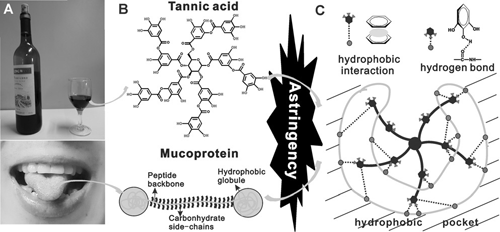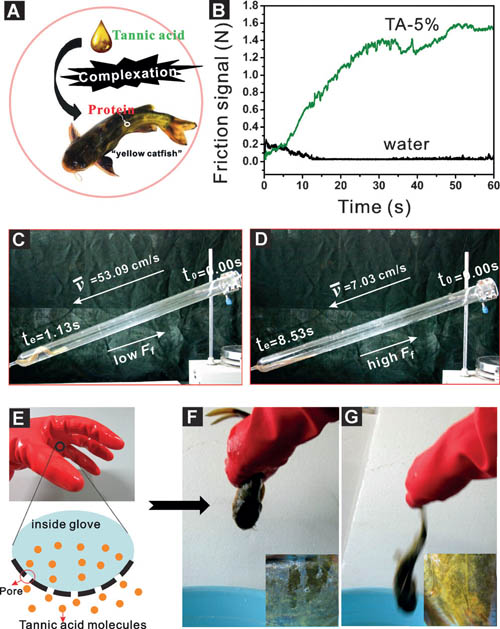Oral astringency, a sensation of taste on the tongue when drinking wine and eating some unripe fruits, was explained as a result of the polyphenol–protein complexation reaction. However, it has never been explored from the perspective of tribology.
The research group headed by Professor ZHOU Feng at the Lanzhou Institute of Chemical Physics (LICP) of the Chinese Academy of Sciences (CAS) has systematically investigated the origin of astringent mouthfeel when eating unripe fruits, drink coffee and tea, from the perspective of lubrication by the in situ capture of disturbing signals of friction force. They simulated the dynamic weak interaction on the tongue with model protein (mucoprotein, MP) and polyphenolic compounds (tannic acid, TA).


Results show that astringency was due to the protein-mediated lubrication failure when encountering polyphenolic molecules that normally exist, for example, in unripe fruits, coffee and tea. The underlying molecular mechanism of oral tribology is widely present in nature and enables the researchers to engineer a tongue-like polyacrylamide composite hydrogel that exhibits high TA sensitivity and to develop a scientific strategy for catching slippery fish using TA-containing gloves.
These results provide novel and useful insights into the failure of biological boundary lubrication on soft tissue surface with the adsorbed proteins.
The work has received financial support from the National Natural Science Foundation of China and the CAS. The findings have been published in Angew. Chem. Int. Ed. (Angew. Chem. Int. Ed.2016, 55, 5793 –5797).
Contact:
ZHOU Feng
State Key Laboratory of Solid Lubrciation, Lanzhou Institute of Chemical Physics, Chinese Academy of Sciences, Lanzhou 730000, China
E-mail: zhouf@licp.cas.cn


